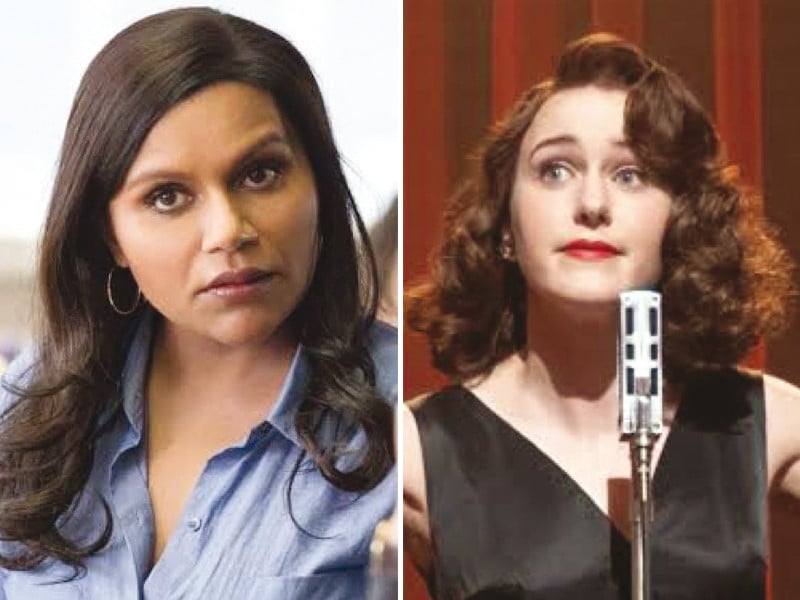
In 2014, I was a twelve-year-old sitting cross-legged in my best friend's One Direction themed room (which my parents refused to let me have because they didn't want me "sleeping on a bedsheet with a bunch of boys on it"), binge-watching a brown girl on YouTube transform into her father with a cheap wig, eyeliner beard and a questionable Indian accent. She called herself Superwoman, and with her mother's character perpetually draped in the same beige dupatta, she delivered hilariously relatable sketches of life in a desi family. It was the first time I saw a female comedian at work and who knew women could be funny, huh?
Fast forward ten years, and that same woman – Lilly Singh – went from filming in her bedroom in Canada to her name emblazoned on billboards across Hollywood, hosting A Little Late with Lilly Singh on NBC. And while I would surely not find her sketches as funny if I were to watch them now, Lilly taught a generation of brown girls that the punchline wasn't exclusively a man's domain. The future of comedy, it turned out, wasn't just diverse – it was female. And yet, comedy still feels like a boys' club.
The persistent glass ceiling
Comedy remains a field where women remain underrepresented and undervalued. According to data from Chortle, 72 per cent of performers in the UK's top comedy lineups are men. Even now, all-male lineups are common on weekends at big venues. The world of stand-up comedy still often feels like an endless parade of middle-aged men with microphones, too unoriginal to move past the same tired jokes about sex and racism (this is not to say all male comedy is not worth a stray thought – you will not find a bigger fan than I when it comes to Kevin Hart and Matt Rife).
Meanwhile, women comics – who have historically been seen as anomalies – are still treated as outsiders in their own industry. The idea that women aren't as funny as men lingers, often unspoken but deeply entrenched.
Blame it on centuries of cultural conditioning. Throughout history, humour has been seen as a male trait – women were expected to laugh, not to make others laugh. Take Shakespeare, for example. His plays were full of witty women, but they were never the heroines. The comic relief were often nurses, maids or side characters.
Even when women were allowed to be funny, it came with rules. Be bawdy, but not too bawdy. Be clever, but not so clever that it threatens the men around you. As Joy Wiltenburg, a historian at Rowan University, noted, "Men once feared not that women weren't funny, but that they might direct their humour at them."
Comedy as power
At its core, comedy is about power. It's the ability to hold an audience's attention, to shape a narrative, to make people see the world through your eyes. That's why the continued exclusion of women from comedy isn't just a professional injustice – it's a cultural one. Even today, women comedians are often pigeonholed, expected to speak only on "women's topics" or make their material palatable to predominantly male audiences.
But here's the truth: comedy is at its best when it comes from a place of authenticity. Laughter is born from lived experience – from trauma, from joy, from the absurdities of everyday life. When women take the stage, they bring perspectives that have been missing for far too long.
This is why Prime Video's The Marvelous Mrs Maisel was such a game-changer when it came out in 2017. By following Midge Maisel, a 1950s housewife-turned-stand-up comic, the series spotlighted the barriers women face in comedy and celebrated their triumphs. Drawing inspiration from legends like Joan Rivers and Phyllis Diller, the show cleverly portrays how a housewife who supports her husband through his failing dreams of becoming a comedian ends up a pretty good one herself, causing him to resent her for it.
Midge's journey challenges outdated notions that women in comedy must resort to ghost writing jokes for men or conform to non-vulgar jokes and punchlines related only to domestication, inspiring authenticity and empowering unique voices. The series also reignited interest in female-driven comedic narratives, proving their viability in both critical and commercial realms. It sparked conversations about systemic gender disparities in the industry, urging change and reflection.
Similarly, the 2019 film Late Night, written by and starring Mindy Kaling alongside Emma Thompson, offers a narrative centred on Molly Patel (Kaling), a novice writer who joins the all-male writing team of veteran late-night host (Thompson). This storyline mirrors the real-world dynamics of gender disparity in male-dominated comedy writers' rooms.
A new generation of funny
The comedy landscape is shifting. In the wake of Hollywood's double strikes in 2024, streaming platforms are betting big on stand-up comedy. Netflix, Hulu, and even Disney are throwing their weight behind fresh voices.
Netflix's Netflix Is a Joke festival, for instance, featured over 600 artists, with women taking centre stage. Comedians like Hannah Gadsby, Katherine Ryan, and Wanda Sykes are redefining what comedy can be, combining sharp social commentary with spit-out-your-drink humour.
Take Chanel Ali, whose stand-up focuses on turning pain into punchlines. Her stories about growing up in foster care and navigating family trauma are both heartbreaking and hilarious, and delivered in a way where you don't have to be confused whether as to laugh or sympathise. Or Dina Hashem, who uses her deadpan delivery to explore the nuances of her Islamic upbringing, skewering stereotypes that plague the minds of many.
Despite these successes, women in comedy face unique hurdles. Critics – who still tend to be white, male, and middle-aged – wield disproportionate power over comics' careers. A glowing review can launch a comedian into stardom; a dismissive one can keep her in the shadows. Worse, women often have to contend with biases from audiences who are quick to judge female comics as either too loud, too crass, or not funny enough.
But women are now using social media to bypass traditional gatekeepers, building massive followings on platforms like TikTok and YouTube. They're producing their own specials, creating their own podcasts, and proving that they don't need anyone's permission to be funny.
Katherine Blanford has turned her Southern roots into comedy based on sharp observational humour. Fern Brady, whose Netflix special Autistic Bikini Queen tackles her late autism diagnosis, is redefining vulnerability on stage. And Becky Robinson, with her wildly popular "Entitled Housewife" character, has transformed pandemic boredom into a full-blown comedy empire.

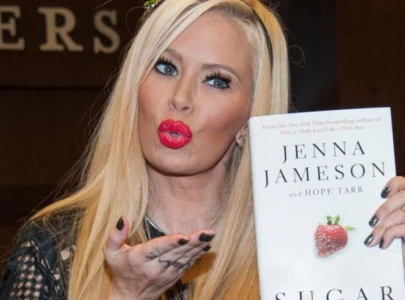
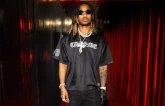
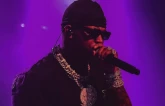
1735040357-0/Untitled-(100)1735040357-0-165x106.webp)
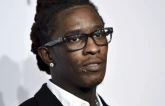

1735026929-0/Express-Tribune-(2)1735026929-0-270x192.webp)




1734899716-0/image-(15)1734899716-0-270x192.webp)

1732012115-0/Untitled-design-(14)1732012115-0-270x192.webp)
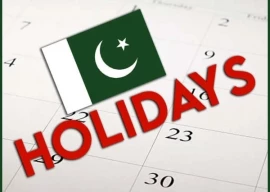








COMMENTS
Comments are moderated and generally will be posted if they are on-topic and not abusive.
For more information, please see our Comments FAQ